Our Kids
This is a book about choices that have changed the United States from a place “that offered decent opportunity for all the kids in town” to a place that is increasingly divided between those who have almost everything and those who have almost nothing.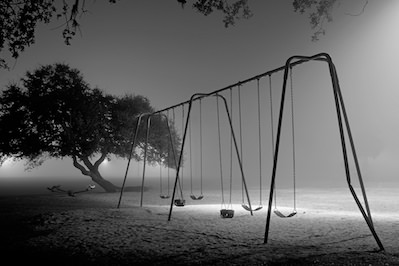
“Our Kids: The American Dream in Crisis” To see long excerpts from “Our Kids” at Google Books, click here.
A book by Robert D. Putnam
Robert Putnam’s “Our Kids: The American Dream in Crisis” is about many things, all of them connected and all of them ominous. It is about the loss of social mobility for millions of Americans. It is about the dangerous concentration of wealth and a massive increase in poverty that have infected every aspect of American life; and it is about both threatening to become the norm. It is, despite the happy talk of the Internet bringing us all together, about the obliteration of meaningful connections in both institutional and everyday personal relationships, and about the creation of a two-class society, one class mired in hopelessness, despair and violence, while the other grows increasingly oblivious of that hopelessness, despair and violence. It is about the perpetuation of privilege for those who have power, and the social paralysis or jail time for those who do not. It is about the logical and inevitable consequences of an America in which unfettered capitalism has been allowed to become the god before which no other gods are placed. It is about the layered and dynamic void created by deindustrialization and automation. It is about the systemic retreat from the social contract. It is about a segregation of classes not seen since the 19th century Gilded Age. It is about an American horror story so insidious and yet so prevalent it has become, somehow, unseen.
Ultimately, “Our Kids” is about consequences — consequences of choices that were anything but inevitable and that, in a mere half century, have changed America from a place “that offered decent opportunity for all the kids in town” into a place that is increasingly divided between those who have almost everything, and those who have almost nothing — and who see no way of changing that. It is about consequences that have slashed the social fabric of the working class so violently that in many, if not most, places, community, in any meaningful sense of the word, no longer exists.
“Our Kids” exposes these consequences, now found in towns all over America. Putnam began this work in a deeply personal fashion. He begins his study by returning to his hometown of Port Clinton, Ohio, which he left upon high school graduation in 1959, and interviews both his surviving classmates and the children of contemporary Port Clinton. What he finds is deeply troubling. It is also the logical outcome of neoliberal policies that have dominated American politics for decades.
“Comparing Port Clinton kids in the 1950’s with Port Clinton kids today,” Putnam writes, “the opportunity gap has widened dramatically, partly because affluent kids now enjoy more advantages than affluent kids then, but mostly because poor kids now are in much worse shape than their counterparts then.” He finds the pattern in Port Clinton replicated all over America: Atlanta; Orange County, California; Lower Merion Township, Pennsylvania; Bend, Oregon. Wherever he looks, Putnam confronts the same dire divisions and their consequent social pathologies.
Putnam — the child of a small-time businessman in a gritty if proud working-class city, who rose to become the Malkin Professor of Public Policy at Harvard University, a member of the National Academy of Sciences, and a fellow of the British Academy — knows of what he speaks. Most importantly, he knows it in his heart as well as his head. He knows too that his story would be very different and greatly stunted had he been born a few generations later than he was. Lastly, Putnam knows that both the town and nation of his youth were a far cry from a Ronald Reagan fantasy of a lost paradise. Both, he makes clear, were infected with the plagues of racism and sexism.
Even so, Putnam writes, there was social mobility and community, and the two were intrinsically linked. Indeed, in what is perhaps the single most telling passage of the book and the inspiration for its title, Putnam describes his 1959 graduation from Port Clinton High School: “It was, as usual, a community wide celebration. Family or not, the townspeople thought of the graduates as ‘our kids.’ ”
Putnam discovers, as he travels around America conducting the interviews that make up a good deal of the book, that today, if the phrase “our kids” is used at all, it signifies one’s biological children and nothing more. He finds today “the war of every man against every man” decried by Thomas Hobbes in his 1651 political treatise “Leviathan.” And that is not all he finds:
“Our parents, almost universally homemaker moms and bread winner dads, were not especially well educated. Indeed, barely one in 20 had graduated from college and a full third hadn’t even graduated from high school. But almost everyone in the town had benefited from widely shared postwar prosperity, and few of our families were poverty stricken. The very few kids in town who came from wealthy backgrounds, like Frank, made every effort to hide the fact.”
This was, indeed, a vastly different nation.
“Our Kids” is built on interviews and data that center on the institutions and practices Putnam posits as foundational and life giving: families, parenting, schooling and community. Both interviews and data reveal that, for all but the well-to-do, these things are coming apart at the seams if they exist at all.”Our Kids” can be read as a kind of continuation and deepening of Putnam’s highly acclaimed “Bowling Alone” (2000), a meditation on American disengagement and consequent loneliness. “Our Kids” is also an extraordinarily intentional work — the intent being no less than to help “to alter the cursed course of our society.”
Putnam rightfully draws a parallel between the America of the 19th century Gilded Age and the America of today. Both societies created an almost absolute segregation of classes, in which the wealthy reaped the rewards of the social Darwinism public policies, oblivious to the suffering and squalor outside their elite circles. (Consider Race to the Top, Obama’s signature education policy, which demands every student and every teacher and every school compete against every other student, teacher and school across the United States.)
Putnam draws inspiration from the seminal 1890 publication “How the Other Half Lives: Studies Among the Tenements of New York” by photojournalist Jacob Riis, which was instrumental in exposing the horrid conditions of New York City’s slums to the upper and middle classes, an awareness that Putnam sees as an absolute precondition to change:
“Moreover, class segregation means that members of the upper middle class are less likely to have firsthand knowledge of the lives of poor kids and thus are unable even to recognize the growing opportunity gap. One reason, in fact, for including life stories of young people in this book is to help reduce the perception gap — to help us all to see, in the words of Jacob Riis, a social reformer during the previous Gilded Age, ‘how the other half lives.’ ”
Putnam continues:
“[U[ltimately, growing class segregation across neighborhoods, schools, marriages (and probably also civic associations, workplaces and friendship circles) means that rich Americans and poor Americans are living, learning, and raising children in increasingly separate and unequal worlds, removing the stepping-stones to upward mobility — college going classmates or cousins or middle class neighbors, who might take a working class kid from the neighborhood under their wing.”
But even if the rich were moved to act, is it enough to even begin addressing a problem of this magnitude? Not even taking into account the vanishing of jobs due to outsourcing or automation, the grotesque concentration of wealth acts as a kind of vortex, deforming everything in its path.
In fact, reform did follow Riis’ exposure. The slums were torn down. Garbage was collected. Laws forbidding child labor were passed. All of this was to the good. Putnam wrote “Our Kids” to cast a similar light on a similar plight, even if the problems he describes and portrays are no longer limited to a New York city slum but spread out across the entire nation; even if, as witnessed in both the prison system and the public school system, the very word “reform” has become synonymous with privatization; even if there is no one on the political stage who is not utterly dwarfed by a figure like Teddy Roosevelt, who rammed in reform after reform by sheer acts of will; even if many of the wealthy and super wealthy of this age have nothing but contempt for the poor.
“Our Kids” is a cri de coeur from a scholar whose passion is matched by his formidable intellect, his hunger for some semblance of fair play, his willingness to look uncomfortable realities square in the face and his horror of policies that have rendered generations of people disposable.
The book is not an analysis of how America got to where it is or a prescription for how to get out of it. (For the “how-we-got-here,” I’d recommend “Capital in the Twenty-First Century” by French economist Thomas Piketty and “Death of the Liberal Class” by Chris Hedges.) Putnam’s suggestions for change — an end to wage stagnation, better early childhood education, an end to “play for pay” in high school athletics and the like — are meant to ameliorate, not to solve this crisis. And he wants to bring back community in an economic order and a culture that, in many ways, thrives off community’s corpse. Putnam wants a plutocracy to correct the nightmare world he encounters, though it was a plutocracy that, in large measure, created it.
In short, “Our Kids” shows both the strength and the grave weaknesses of the liberal impulse and perspective.
Putnam is no revolutionary, nor does he pretend to be. He is, in fact, a big-hearted moralist who has never forgotten where he came from and how he got to where he is, who happens also to have a brilliant mind. Rather than an investigation of how this immense chasm between the rich and the poor was formed, “Our Kids” is a bold and chilling presentation of its consequences. And within those parameters, “Our Kids” is a startling and horrifying success, and the act of writing it, an act of faith.
Patrick Walsh teaches in a public school in Harlem. He is also a chapter leader for the United Federation of Teachers and a musician. He blogs here.
Your support matters…Independent journalism is under threat and overshadowed by heavily funded mainstream media.
You can help level the playing field. Become a member.
Your tax-deductible contribution keeps us digging beneath the headlines to give you thought-provoking, investigative reporting and analysis that unearths what's really happening- without compromise.
Give today to support our courageous, independent journalists.

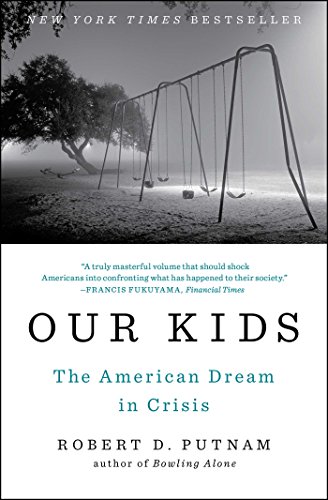

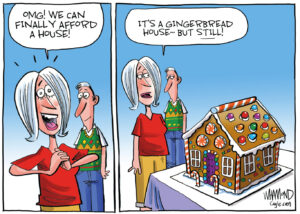
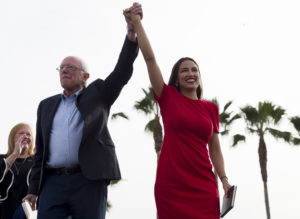
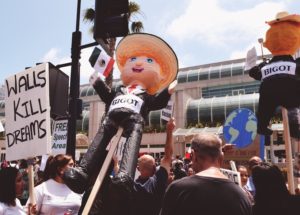
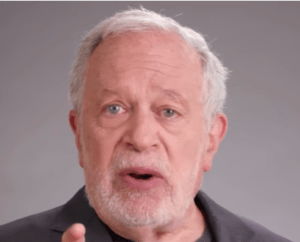
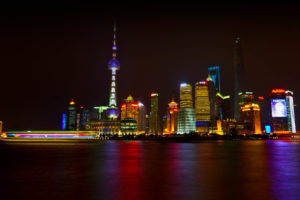


You need to be a supporter to comment.
There are currently no responses to this article.
Be the first to respond.